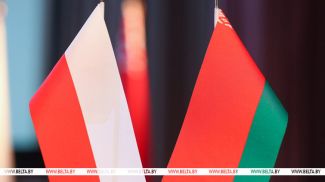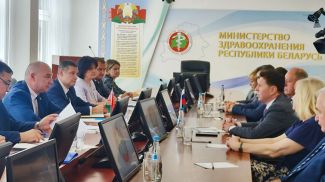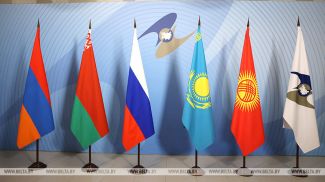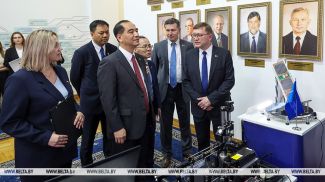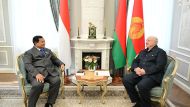MINSK, 21 May (BelTA) – The Country Profile on Urban Development, Housing and Land Management of the Republic of Belarus has been drawn up and will be presented in Geneva in October of this year, Belarus Deputy Architecture and Construction Minister Oleg Shvets said as he addressed the workshop “Towards the implementation of the 2030 Agenda on Sustainable Development: housing management, energy efficiency in buildings and sustainable urban development,” BelTA has learned.
The country profile has been developed jointly by the UNECE, UN-Habitat, a group of international and national experts with financial support from Russia. It gives recommendations to the government on ways of improving state urban planning, housing and land policies, modernizing housing stock and other matters.
“The document applies to all phases of the life cycle of construction: land use, rental housing, mortgage, interest rates, supporting low-income households, urban policy, energy efficiency. A large group of national and international experts has been working on the set of events for over two years. Results will be presented in Geneva in October. Once translated into English the document will come into force,” Oleg Shvets said.
All in all, 30 proposals were submitted as the document was in the works. Some of them have already been incorporated into normative legal acts or are still under consideration in government agencies. International experts highly approved of the work done. “The fact that we have drawn up such a program document is big for the society. It gives the opportunity to develop national legislation in accordance with international practices,” the deputy minister added.
The international training workshop is running on 21-24 May. Its participants are set to discuss the best international practices in the field of housing management and maintenance, the role of the private sector, the development of smart sustainable cities, sustainable urban planning, green energy and energy efficiency. The projects implemented in Belarus will be on the agenda as well. The pilot initiatives on smart city and energy in Novogrudok District, Grodno Oblast will be presented on the last day of the workshop.
The seminar has been organized by the Architecture and Construction Ministry in close collaboration with the UNDP, the Ministry of Natural Resources and Environmental Protection, the Ministry of Foreign Affairs, the Academy of Public Administration under the the auspices of the Belarus President. It is timed to the launch of the national review of housing, urban development and land use in Belarus. The thematic sections will hear the speakers from Belarus, Russia, Estonia, Armenia, Kazakhstan, Georgia, Ukraine and Kyrgyzstan.
On 25 September 2015, the UN General Assembly adopted Resolution 70/1 “Transforming our world: the 2030 Agenda for Sustainable Development (2030 Agenda) and 17 Sustainable Development Goals included in it. This formed a new future-oriented concept of global establishment that envisages harmonious development of states and societies based on three interrelated components: economy, social sector and environment. The adoption of the 2030 Agenda required from all the states to review and concretize the national program documents and develop SDGs implementation mechanisms.
Belarus is committed to the Agenda 2030 and has already taken a number of important steps to reach the SDGs. The country has created the institutional basis to ensure progress towards the SDGs. For example, the government has instituted the post of SDG National Coordinator and has set up the Council for Sustainable Development. The council runs regional groups, a partner group (composed of representatives of non-governmental organizations, business and academia). The National Assembly has a parliamentary group for SDGs.
Mutually beneficial cooperation on the global and regional level, exchange of knowledge and expertise in innovations for capacity-building and transfer of technology for development are seen as important factors in achieving the SDGs.





